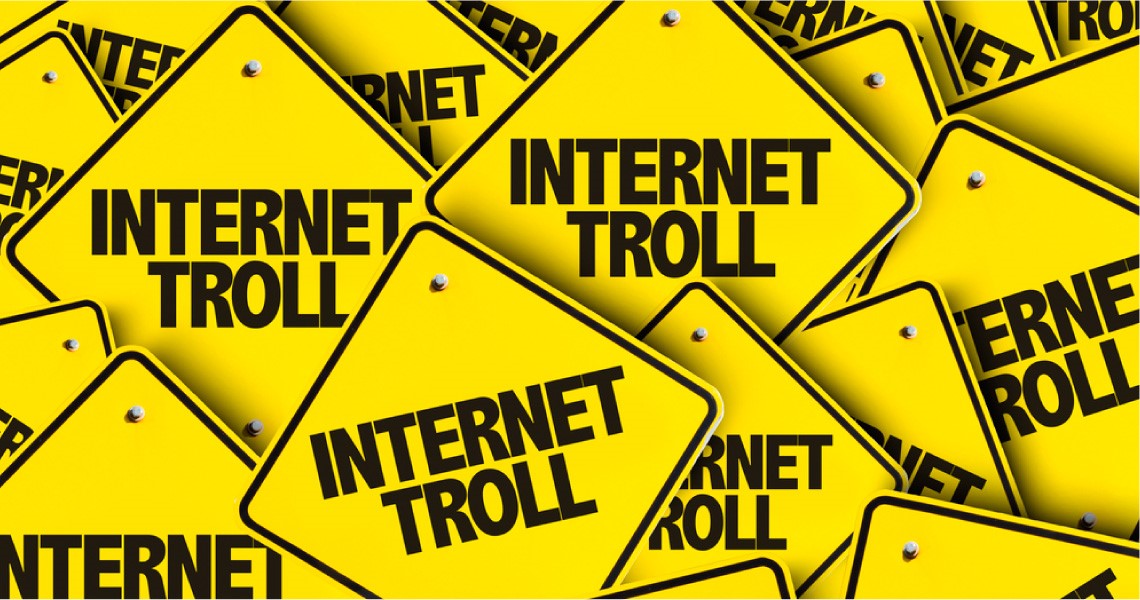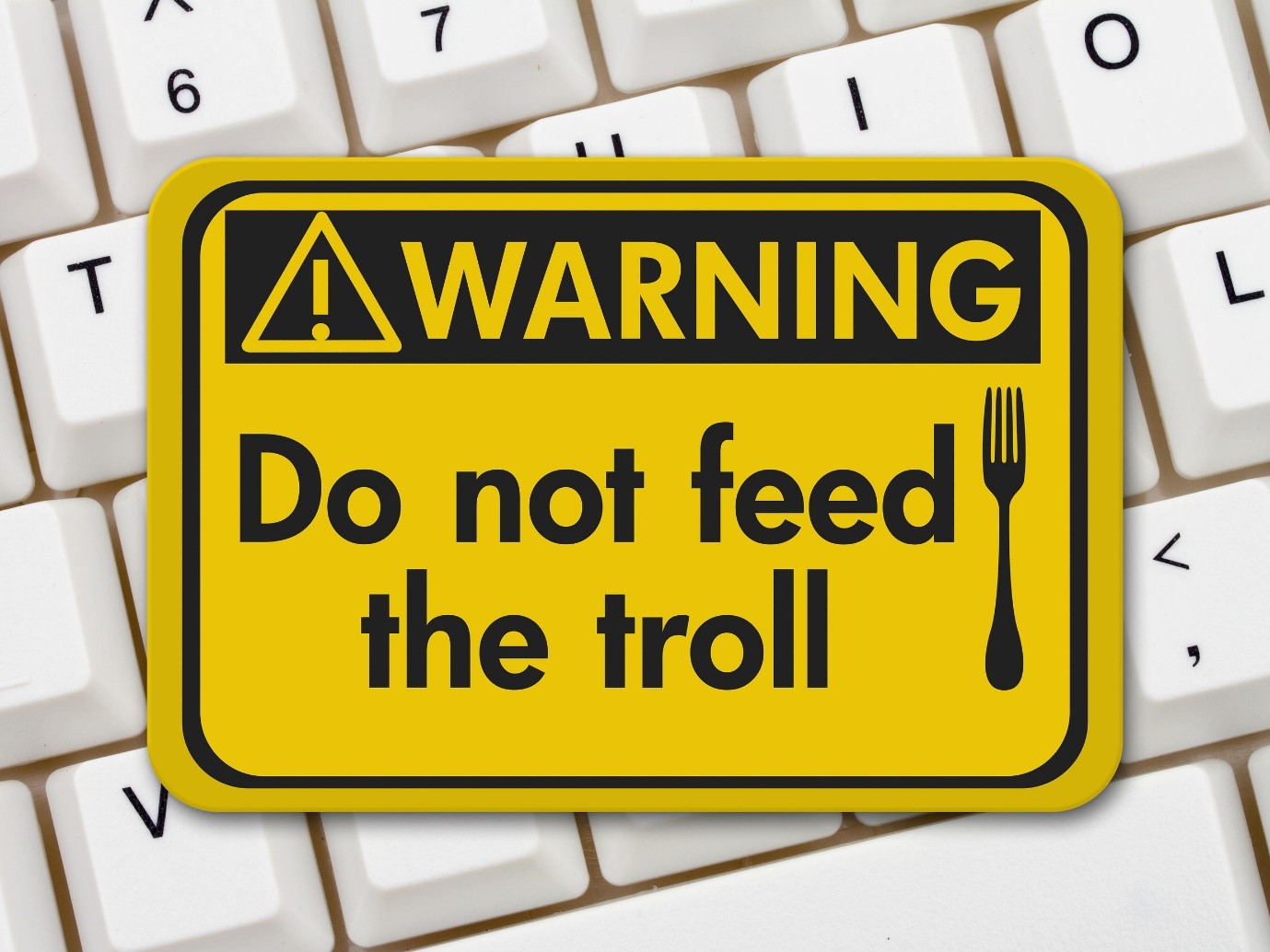An internet trolling fishing is someone who bother or harass others in response to the other peoples’ thinking patterns or even just their participation online.
Trolling occurs in all corners of the Internet and became a weapon (or a tool). Most trolling occurs on social networking sites like Facebook and Twitter, but trolls also bother people in the comment sections of websites and blogs. People get trolled on dating sites, and even on gaming sites, so the reality is that almost any person with a good online presence probably be targeted by a troll. Some social media sites have responded to the misfortune by strengthening policies deal with rude content.

Contents
Practical Responses to Trolling
In addition to any legal methods that a individual targeted by a troll may have, non-legal strategy involve the following.
- Don’t nourish the troll. Most trolls just need attention. You strengthen trolls by involving with them, so if you avoid them, they sometimes give up.
- Block them. Block or Unfriend a troll, if possible. Of course, this won’t stop the troll from posting insulting tweets or comments about you, or block others from taking up the attack against you, too.
- Report them. Report the trolling to the online services. This eventually worked for people and social media companies and online service providers may respond to reports. Check the site’s terms of service to see if the troll is in breaching.
- Discuss. Start a discussion of the trolling, in hopes that you’ll assemble support and motivate responses that may demoralize the troll. (This, of course, feeds the trolls, but it might work when avoiding them doesn’t.)
- Exit. You always have the final option—to exit the online site. A less greatest measure is to change your username and/or delete your profile permanently.
They’re individuals who on purpose provoke others online. By saying offensive and inflammatory things. They live to make individuals angry and upset.
People like your followers and fans. They go on and on, spew hate speech and post death threats.
They might attack a users character. And say matters to appeal to people’s emotions (rather than their intellect). They’re enemy— not buds—of your business. Clearly. Don’t blend up trolling someone with angry people.
How do you stop a troll?
Ignore them Trolls want negative reactions from others, as they seek attention. So then… Just. avoid. Them. Don’t spark them.
They require you to get upset. Don’t give them the good laugh. Deprive them of their live cycle force, so they’ll go dig elsewhere. This works. Sometimes. While you, as the social media admin, choose to avoid them, other well-meaning people might not.
Now the troll is gaining the friction it craves and feeds on. Inactivity is no longer an option. No worries. Try a different strategy to ignore a disaster.
Respond with facts
Are your trolls spreading wrong information, rumors, outright lies or inaccuracies?
Then deny any narrative told by trolls with facts.
Apple did.
With a response to #bendgate which started with some video. A lot of trolling follow up rumors of the new ‘bending’ iPhone 6.
Apple took a stand. They admitted to a matter, which attack only nine customers in the initial few days of going on sale. Rather than deny, they accept the matter and disclosed. The controversy soon goes off.
Do the similar for your brand. Confess and address to clear the trolls of their fuel.

Diffuse with humor
Easy to say. Tough to do.
Done well, humor can improve your brand and diffuse a circumstance.
- Didn’t avoid the customer
- Recognized the issue
- Apologized
- Mirrored the criticism with a smart reply
However, if your joke falls toneless, that could keep the troll on a roll.
Block or ban them
Most trolls, most of the time, are irritating. And usually harmless.
However, sometimes trolls take matters too far. Like increase rapidly to hate speech or threats. When they do, you can utilize your social might to ban or block them. Also, check the standards for suitable content for that social network. If the troll’s posts are in disobedience, submit a report.
Correct mistakes
Listen to what individuals say on your social media accounts.
If you catch a error:
- Correct it
- Let the person understand what you did
- Explain why
If they’re a disgruntled (and reasonable) user, they’ll most likely appreciate it. Because…
- You responded
- You listened
- You made them feel heard
Which is what we all need. And it can turn irritation into loyalty.
Unless they’re a troll.
They’ll not care.
But it’s all good anyway. Why? Because…
- Your society will hear it
- You showed that you’re hearing properly
- You re-enforced your standards for appropriate attitude
- Everyone do watch how professional you handled it
- Other trolls will identify not to mess with you
You can’t control what’s said. You can control how you react and respond to what’s said. All good things for your brand.
Don’t be baited
Similar to avoiding them, don’t feed them either.
If they’re attempting to be funny, your response probably be just what they require for their pending punchline. If you don’t reply, there’s no joke.
If you do answer, keep your cool. With the manners, and for the reasons, we described above.
Don’t delete their posts
Because that can rocket their bad behavior.
Those studies say that taking extreme action against tiny violation can intensify antisocial behavior. Research also found that if two users wrote similar posts of equal quality, and one user’s post got deleted in unfair way, that user would be more likely to pen up something harsher in the future.
Build a friendly, supportive community
Trolls are a reality of social media life chain.
Make them your buddy.
Remember, your society is waiting to see how you handle them.
Think thoughtfully and pretty carefully about your answer to a troll. Then, post it.
The others will notice. You’ve given them a chance to provocative online post for you. They’ll most likely ring in to make trolls feel unwelcome.
Take the high road. Whether it’s a customer with a legalised complain, or a troll with no intention of a good result.
Being responsible and responsive will assist you build a supportive group of followers. Ones that do respect and stand by you.
This will make life for trolls tough. They’ll most likely move on to spill their digital bitterness elsewhere.
5 signs you’re dealing with a troll
They’ll try to make you angry
Trolls exist for the basic purpose to upset people.
Got someone on Facebook, Twitter, Snap chat or Instagram stirring up trouble? By initiating arguments or posting irritant content?
They’re might be a troll. Especially if they appear to be hollow in their statements, comments, or posts.
They act entitled
Many trolls have an blown up sense of worth. They operate as if the universe revolves around them (or that is should).
Me, me, me… great, great, great. And all you others does not matter. Or something like this way.
If you get this sense, you’re probably overrun with a abhor troll.
They exaggerate
A lot.
They utilize strong words like every and never
Where most others would say some and infrequently
Using excellent way and extremes are ways to arouse people.
And a fair sign you have a troll to deal with.
They make it personal
Arguments, Discussions, and debates—all safer game for healthy talks among your online users. Until it gets personal. Which is what trolls do.
Rather than discuss a matter, logically and reasonably, trolls hit at an opponent’s character. They’ll call people names and say matters to appeal to prejudices and feelings, rather than intellect.
They often can’t spell
Trolls seem to suck at grammar and spelling. They…
- Spell words in a wrong way
- Use words in a wrong way
- Don’t capitalize initial words of sentences
- Avoid periods and commas
- Mix up words that sound similar, but mean something different
- Say “I” a lot
- Same for “!!!” marks
- Type in all caps
- Use made up and idiotic words throughout a senseless sentence
What are the effects of trolling?
Trolling do cause significant distress and harm. It is connected with serious psychological and physcial effects, including anxiety, depression, disrupted sleep, suicidal ideation, , self-harm, lowered self-esteem, and in some cases, even felling blue all time.




